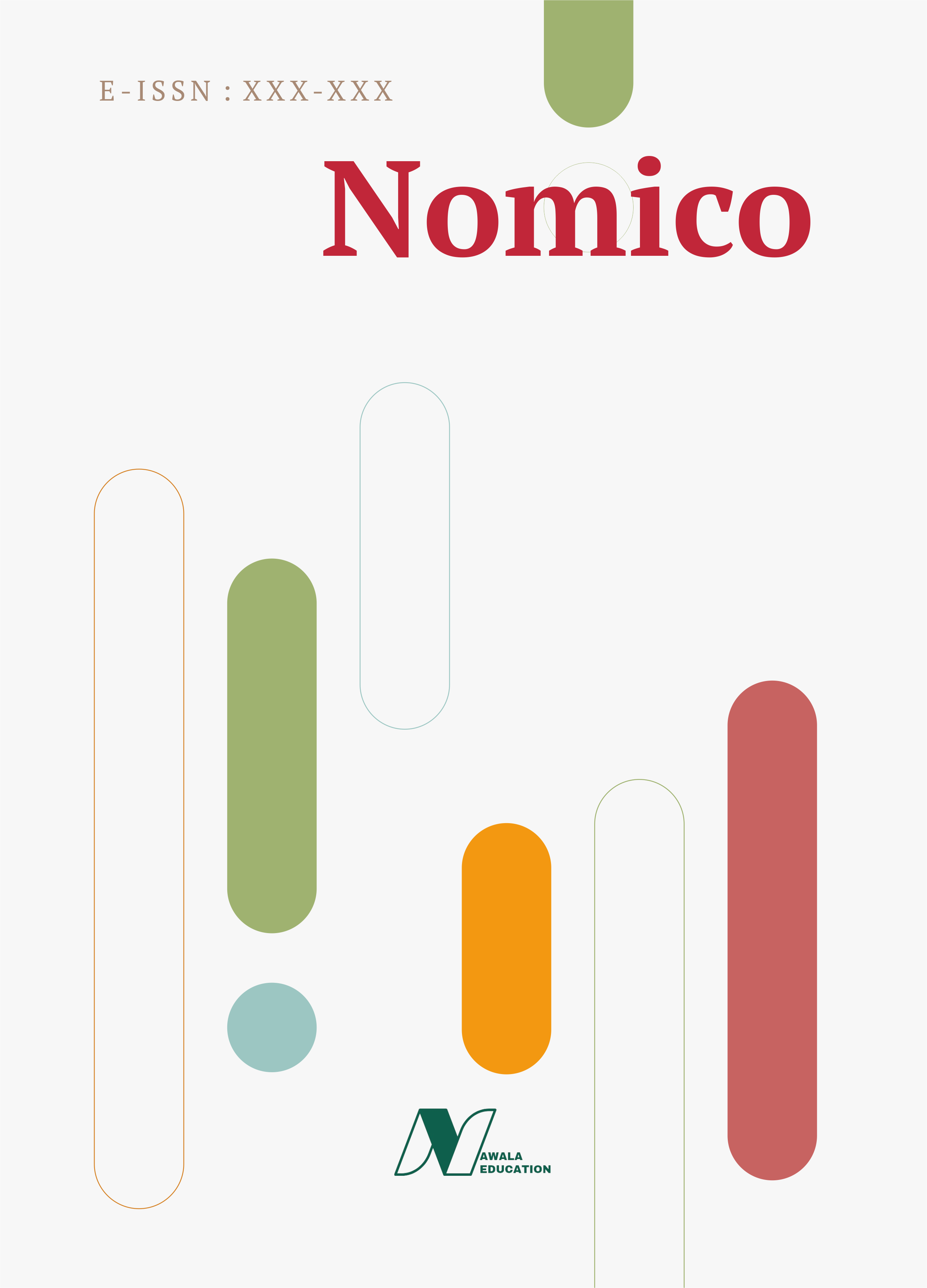Intralingual Understanding of Zakat, Infaq, alms, and Gifts in Islamic Economics In Aceh
DOI:
https://doi.org/10.62872/h1nfdj09Keywords:
Alms; , Gifts, Infaq, Intralingua, ZakatAbstract
The implementation of Islamic economics in Aceh has a positive impact on society. Aceh Province is a region in Indonesia that has an influence on poverty issues because it has been hit by social conflict that has been going on for a very long time so that access to work is not conducive for the people of Aceh. ). Aceh Province with the implementation of Islamic law has a role to play in resolving and minimizing poverty problems. The method used by Aceh Province is to foster the management of zakat, infaq and alms because they are sources of eternal funds. Supporting the importance of previous research on zakat, infaq and alms, this study wants to determine the ability to understand interlingual terminology about zakat, alms and infaq plus one other terminology, namely gifts. This research was a descriptive-qualitative research. The data used are 4 terminologies in Islamic economics, namely alms, zakat, infaq and gifts to be translated interlingually. The four terms to be translated were analyzed using the intralingual equivalence method. The sample is 50 students from the Faculty of Economics who have studied science related to Islamic economics courses. The findings obtained that related to the terminology of zakat, all participants as many as 50 students or 100% of participants managed to answer intralingually. Then, there were the same results between the terminology of infak, sedekah, and hadiah, namely 47 students managed to answer correctly but insignificantly there were only 3 students who answered incorrectly.
Downloads
References
Abdurrauf, M. (2023). Konsep dan Implementasi Sistem Ekonomi Islam di Aceh. Universal Grace Journal, 1(1), 92–101. Retrieved from https://ejurnal.ypcb.or.id/index.php/ugc/article/view/10
Adelia, , Miftahurrahmah, Nurpathonah, Zaindanu, Y., & Ihsan, M. T. (2021). The Role Of Google Form As An Assessment Tool In Elt: Critical Review Of The Literature. Indonesian Journal of Research and Educational Review, 1(1), 58-66.
Anwar, A. Z., & Arifin, M. (2018). The Degree Of Understanding Of Zakat On Profession/Income In Jepara Regency. Jurnal Ilmiah Al-Syir’ah, 16(2), 138-147.
Ayu, N. (2023). Analisis Pemahaman Zakat Terhadap Membayar Zakat Di Baznas Pada Kalangan Civitas Akademik Sekolah Tinggi Agama Islam Yogyakarta. Quranomic: Jurnal Ekonomi Dan Bisnis Islam, 2(1), 24-36.
Bania, A. S., Faridy, N., & Nuraini. (2023). Kemampuan Memahami Terjemahan Intralingual oleh Siswa Sekolah Dasar. Jurnal Bahasa dan Sastra Indonesia, 3(1), 84-88.
Batubara, T. R., & Syahbudi, M. (2023). Operasional Badan Amil Zakat Nasional (Baznas) Dalam Penghimpunan serta Penyaluran Dana Zakat di Kota Pematangsiantar. El-Mujtama: Jurnal Pengabdian Masyarakat, 3(1), 106-115.
Chusna, A. B., & Fauziah, H. N. (2021). Pengembangan Instrumen Tes Kemampuan Bahasa Arab Bagi Mahasiswa Iain Ponorogo. Jurnal Kependidikan Dasar Islam Berbasis Sains, 6(2), 263-270.
Doyle, L., McCabe, C., Keogh, B., Brady, A., & McCann, M. (2020). An Overview of the Qualitative Descriptive Design Within Nursing Research. Journal of Research in Nursing, 25(5), 443-455.
Faridy, N., & Bania, A. S. (2022). Analysis Of Management Students Understanding Of Interlingual Translation About Surah At-Taubah Verse 60. Proceedings of International Conference on Islamic Studies, 1(1), 128-132.
Faridy, N., Lubis, N., Bania, A.S. 2023. Intralingual Understanding of Popular Scientific Words About Sharia Economics. Jurnal Pendidikan Ekonomi (JURKAMI), 8(3), 673-685.
Farhan, & Lukman, K. (2023). Analisis Tingkat Pemahaman Masyarakat Kecamatan Margaasih Kabupaten Bandung Tentang Zakat. Ad-Deenar: Jurnal Ekonomi dan Bisnis Islam, 7(1), 115-128.
Hosen, M. N., & Muayyad, D. M. (2013). Tinjauan Hukum Fikih Terhadap Hadiah tabungan Dan Giro Dari Bank Syari’ah. Al-Qalam, 30(1), 1-22.
Karimah, H. K., & Aisyah, S. (2023). Pengaruh Zakat, Infaq, Shadaqah (ZIS) dan Indikator Ekonomi Makro Terhadap Tingkat Kemiskinan di Provinsi Aceh Tahun 2018-2020. Jurnal Ilmiah Ekonomi Islam, 9(1), 1243-1250.
Muhari, S. (2023). Understanding The Colletion And Distribution Of Zakat During Covid-19 Pandemic. AKSES: Jurnal Ekonomi dan Bisnis, 18(1), 42-50.
Nur, H. B. M., Mohamed, S. S. B. P., & Rambely, N. A. S. (2021). Hubungan Sosial Mayoritas Islam Dengan Minoritas Agama-Agama Lain Di Kota Banda Aceh-Indonesia. Jurnal Al-Ijtimaiyyah, 7(2), 213-236. http://dx.doi.org/10.22373/al-ijtimaiyyah.v7i2
Salma, & Riyadi, M. H. (2022). The Effect of Utilizing Productive Zakat, Infaq , Sedekah (ZIS) in Improving Mustahik’s Welfare at Baitul Mal Aceh. International Journal of Zakat, 7(2), 77-90.
Saprida. (2015). Pemahaman Dan Pengamalan Kewajiban Zakat Mal Oleh Sebagian Masyarakat Desa Betung Kecamatan Lubuk Keliat. Economica Sharia, 1(1), 49-58.
Syafiq, A. (2015). Zakat Ibadah Sosial Untuk Meningkatkan Ketaqwaan Dan Kesejahteraan Sosial. Ziswaf, 2(2), 380-400.
Usman, B., Yuliana, Safitri, Y. A., & Uliana, F. (2023). Efektivitas Pengelolaan Zakat, Infaq dan Sedekah (ZIS) di Baitul Mal Provinsi Aceh. Jurnal Humaniora, 7(1), 15-20.
Zada, K. (2023). Sharia Economy and Politics in Aceh: From Exclusive to Inclusive Policy. Al-Iqtishad: Jurnal Ilmu Ekonomi Syariah (Journal of Islamic Economics, 15(1), 59-74.
Downloads
Published
Issue
Section
License
Copyright (c) 2024 Najihatul Faridy, Allif Syahputra Bania (Author)

This work is licensed under a Creative Commons Attribution-ShareAlike 4.0 International License.

This work is licensed under a Creative Commons Attribution-ShareAlike 4.0 International License.











